2 min read
Gospel-Centered from the Start
“Let us hold unswervingly to the hope we profess, for He Who promised is faithful…Jesus Christ is the same yesterday, today, and forever.” (Hebrews...
4 min read
 Barbara Comito, former marketing director
:
February 21, 2018
Barbara Comito, former marketing director
:
February 21, 2018
Over the past two months, we’ve been talking a lot about partnership – how church and business partners, volunteers and donors are the lifeblood of this ministry, how we simply could not do what we do without you.
You give money. You give time. You give toiletries and food and clothing. You give your skills, creativity and job opportunities.
But one of the very best things you give is something of which you might not even be aware: Acceptance.
“The men coming into our shelter have very little confidence. They are ashamed – ashamed of being homeless, ashamed of things they’ve done – and they’re afraid of how people are going to react when they know the truth. To a man, they are blown away that people who don’t even know them give to make sure they have food and shelter and medical care, but when I ask them to speak and share their story to a small group, a whole new wave of shame hits them: How can I possibly tell these people my story? And yet, when they muster the courage to do it, they are met with acceptance. This is such a gift to them. They let down their guard, show their true selves and what they experience is not horror and rejection, but love.” – Jerry Reese, Director of UGM Men’s Recovery
“The ability to have healthy, close, intimate relationships is the key to overcoming the need for all addictions. You cannot do Recovery alone.” – Michael Dye, author of The Genesis Process
Basic needs are critical, for certain. A person must have food, shelter, clothing and medical care, and your gifts to UGM provide all those things. But emotional and spiritual needs are just as critical, and your partnership is providing those, as well. Your compassion, concern and acceptance are dissolving years of shame and loneliness. Your expressions of acceptance and interest are re-programming the way many of our guests have interacted with the world.
.jpg?width=750&name=joe-marsh-edits-(18-of-19).jpg)
In late 2016, the UGM Men’s Shelter made some policy changes in an effort to invest more intentionally in relationships. The staff recognized that it is in relationship that real change happens.
Men’s Shelter Director Gabe Shippam explains the complicated role of loneliness in homelessness, addiction and other self-destructive behaviors: “Loneliness is proof that we are all designed for, and defined by, our relationships. When we lack healthy relationships, we lack fulfillment. Relationships are essential for the health of our lives.”
Unfortunately, most of our guests have been hurt in relationships, so a paradox is created. “They are broken from relationships but need relationships to heal,” Shippam says. “And they don’t trust anyone enough to begin the healing process, so they are left to cope in unhealthy ways. Our shelter is a community of faith that welcomes those who are suffering from loneliness and shame. We begin the healing process by developing trust. From the first time someone walks through our East Door, we work hard to build healthy relationships, increase trust, and compassionately care for those God sends our way.”
And we love the way the community engages in this process with us: nursing students provide testing for blood pressure and blood sugar; volunteers serve right alongside guests doing their chores in the kitchen or the clothing room; mentors build friendships. Bit by bit, trust is restored.
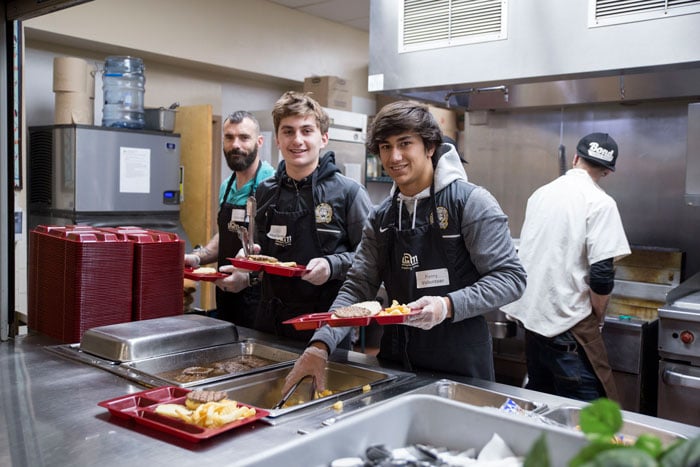
Diane Hutton, director of the Crisis Shelter for Women and Children, told a similar story about the role of shame and the power of relationship to change what’s had a stranglehold on women’s lives.
“Shame is the ‘experience of believing we are flawed and therefore unworthy of acceptance and belonging.’ Shame can make a woman feel powerless and alone. It can also make her hard. By attacking others, she thinks she’s protecting her own heart, but really, she’s just doing more damage.
“We all need someone to listen and affirm our existence. That is what is so powerful about time spent at the Crisis Shelter. Through community, we build relationships, begin to repair trust and rewrite some of those past experiences. We try to give them new tools and introduce them to a God who thinks they are a masterpiece, perfectly and wonderfully made. Who loves them just where they are!”
Oftentimes, residents tell us they’ve never experienced “family” like they experience it in our shelters, and the community is such a huge part of that: the love, the resources, the services, the kindness that you extend makes this place like family.
But people cannot stay in UGM shelters forever. Mike and Jina Doggett, Aftercare Manager and Director of Women’s Recovery at Anna Ogden Hall respectively, emphasize the importance of building similar supportive environments beyond our shelters. And, of course, that’s where you come in…again.
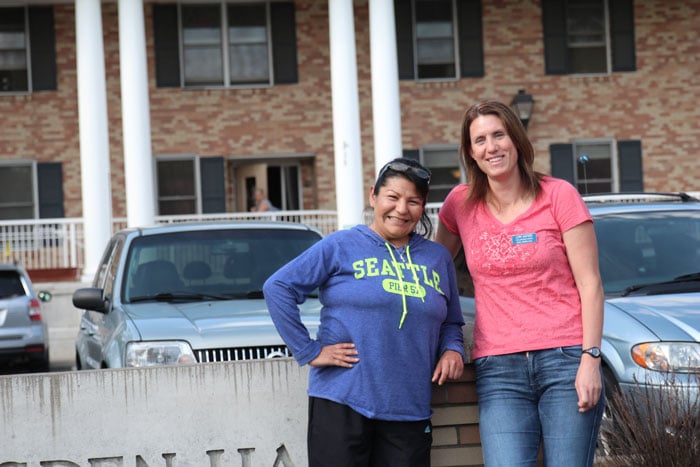 “People in recovery tend to isolate and distance themselves from others, but that tendency will put them on the road to relapse,” Mike says. “We all know we can’t do it alone, but UGM residents have usually had to break off all their old friendships in order to even begin recovery. Their ‘healthy-friend-picker’ is broken so they find themselves feeling alone in a crowd… Lifelong recovery requires that you step into God’s light, admit your powerlessness, embrace vulnerability, and stay connected to your church, your mentor and other healthy people. We must have connection.”
“People in recovery tend to isolate and distance themselves from others, but that tendency will put them on the road to relapse,” Mike says. “We all know we can’t do it alone, but UGM residents have usually had to break off all their old friendships in order to even begin recovery. Their ‘healthy-friend-picker’ is broken so they find themselves feeling alone in a crowd… Lifelong recovery requires that you step into God’s light, admit your powerlessness, embrace vulnerability, and stay connected to your church, your mentor and other healthy people. We must have connection.”
Jina sums up the connection between loneliness and relapse: “Loneliness is one of the most common relapse triggers in addiction recovery. At the root of loneliness is the lack of connection that can lead to depression, anxiety, guilt, shame, social isolation, and ultimately relapse.
“At Anna Ogden Hall, our women live in a community that focuses on connections, as we are keenly aware that healthy relationships are essential to the recovery process. From the start of our program through commencement and beyond, we continuously communicate the importance of accountability and support through church attendance, 12-step meetings and mentor relationships. Rarely do we see those who complete our program return to addictions if they are staying connected to their healthy social support system.”
Connection. Acceptance. Relationship… The very best gifts you can give.
If you want to build relationships with your homeless neighbors but don't know where to start, you should attend a volunteer orientation!

2 min read
“Let us hold unswervingly to the hope we profess, for He Who promised is faithful…Jesus Christ is the same yesterday, today, and forever.” (Hebrews...

9 min read
To celebrate 75 years of serving the Inland Northwest, we are spending the year remembering our history and the faithfulness that built us and...

2 min read
In 2026, Union Gospel Mission Inland Northwest is approaching our 75th Anniversary! This is a milestone that invites gratitude and reflection, and...
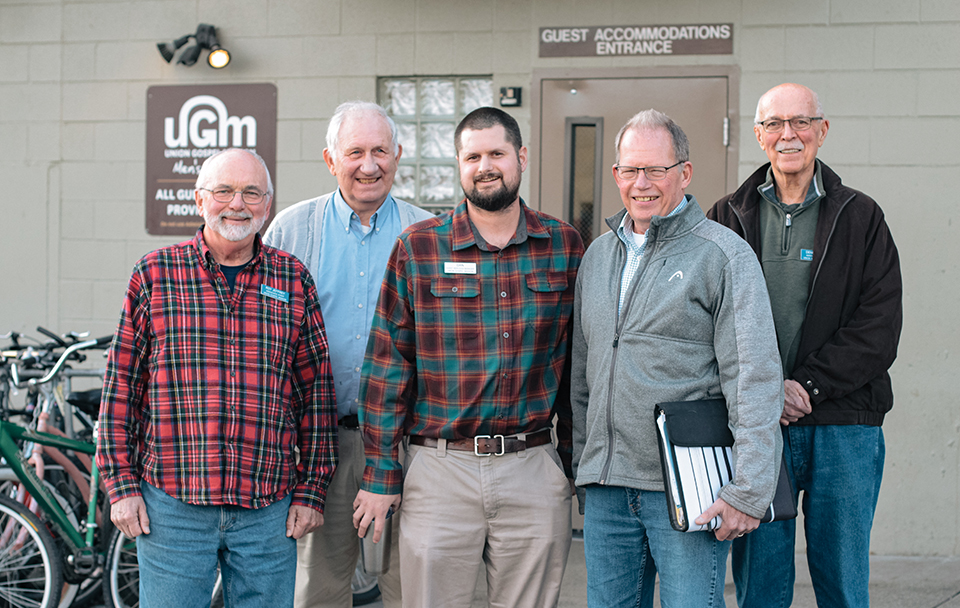
During my first couple of weeks as the Staff Writer at Union Gospel Mission, I was tasked with helping interview seven volunteer case managers who...
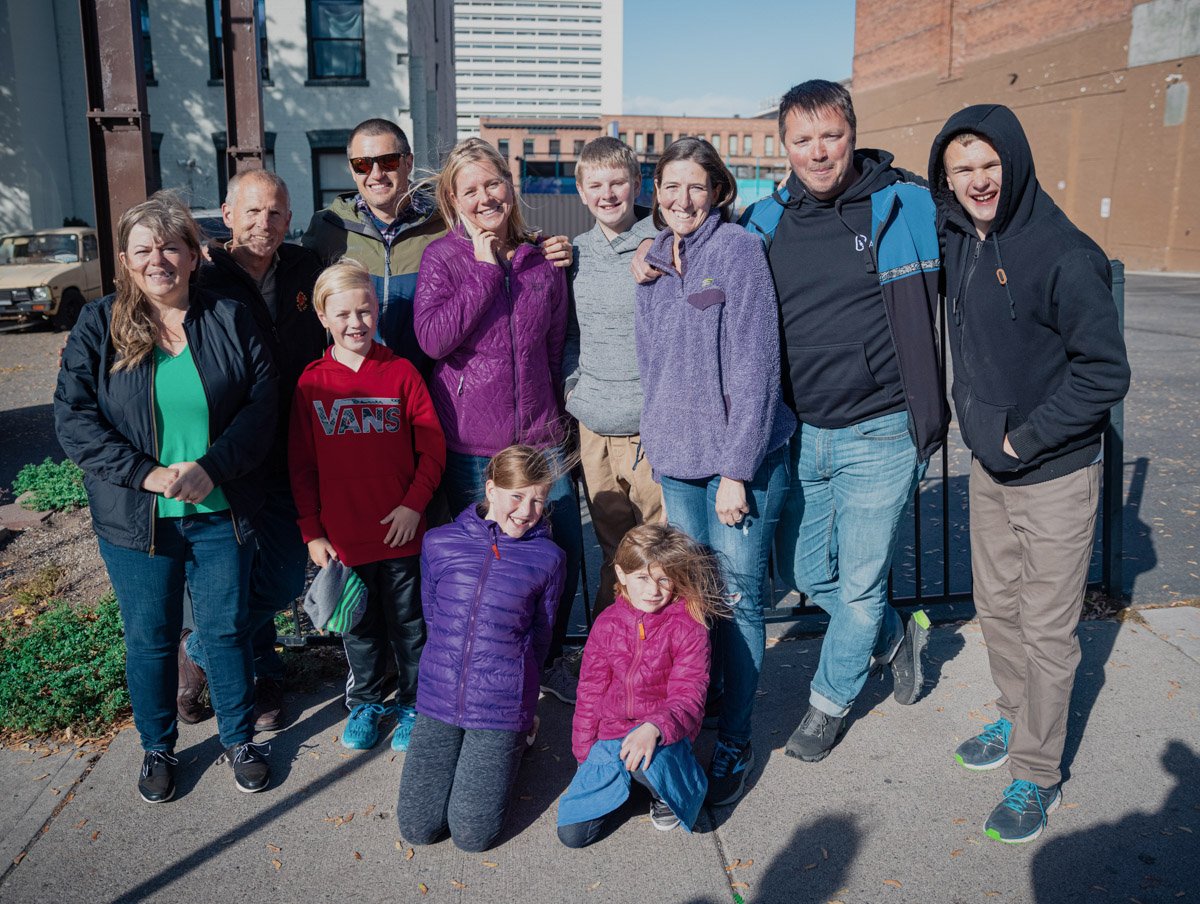
Matt and Nicole Hendrickson are Impact Partners (UGM monthly giving program) who’ve been quietly investing in the lives of homeless men and women for...
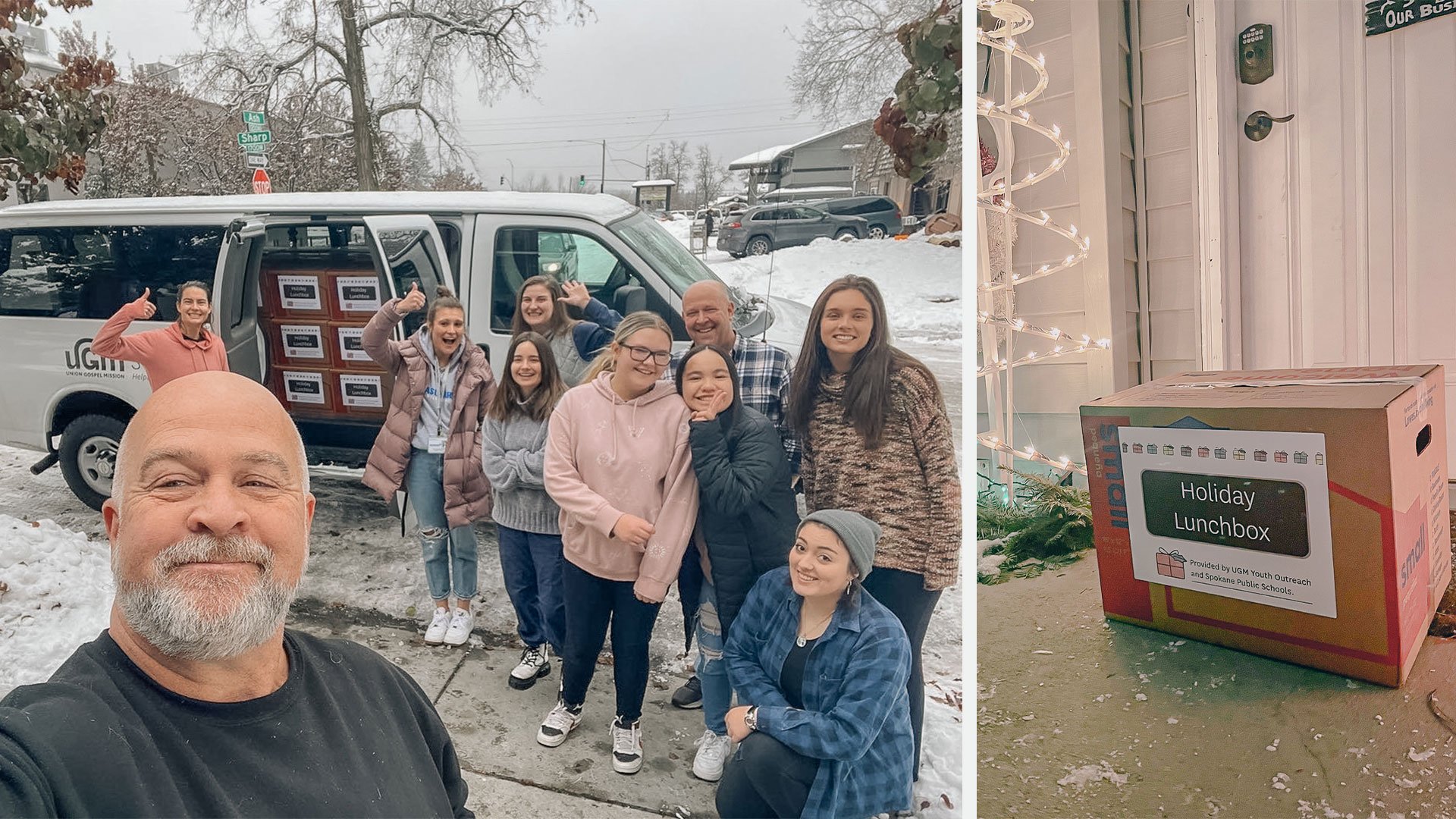
You’ve heard it said before: UGM would not be what it is without people like you investing their unique giftings and resources to reach our neighbors...